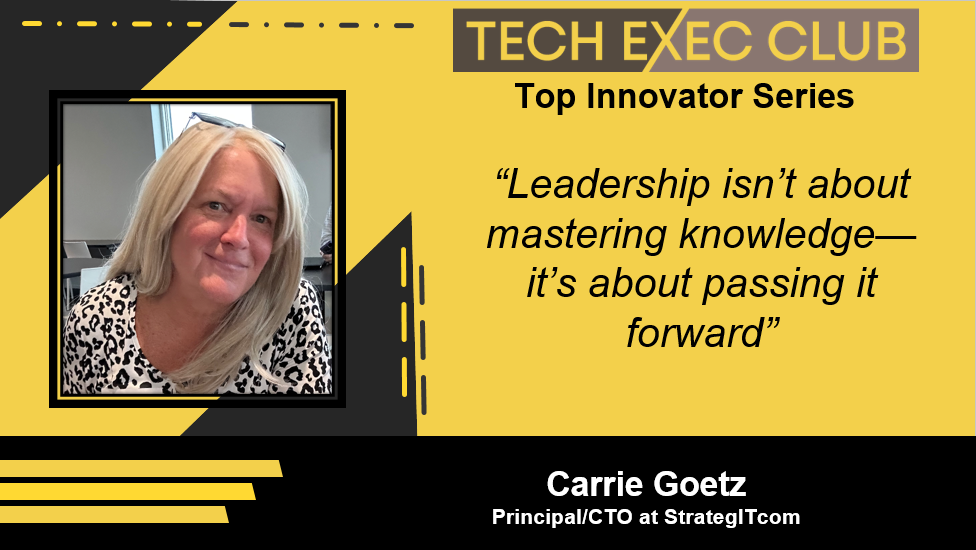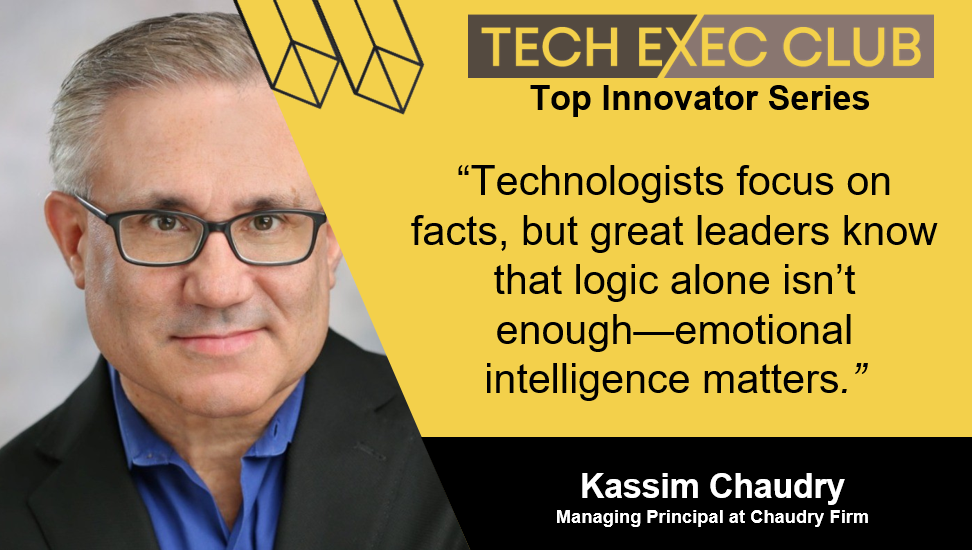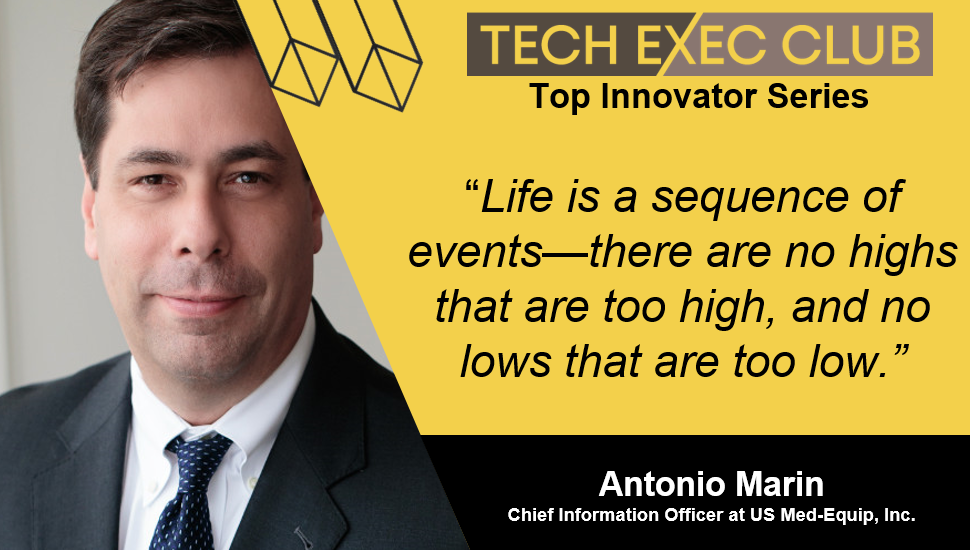Leadership is more than just executing tasks—it’s about understanding the “why” behind every decision. This principle has been the cornerstone of his success for Greg Taffet, the fractional CIO of Ceres Environmental Services. With an extensive background in technology leadership, Greg has developed a keen ability to align business objectives with IT strategies, ensuring that teams don’t just complete assignments but grasp their more profound significance.
His leadership philosophy is rooted in his upbringing. He worked at his father’s shoe store, where he learned firsthand the value of understanding business decisions beyond surface-level execution. This early experience shaped his approach to leadership, prioritizing comprehension, strategic alignment, and team collaboration over mere task completion.
But Greg’s expertise extends beyond the boardroom. He is also a passionate scuba diver and coral restoration expert, demonstrating the same meticulous attention to natural ecosystems as in business. Just as coral reefs play an essential role in the health of our planet, strong leadership, and cohesive teams are vital to an organization’s success.
In this conversation, Greg shares his insights on fostering a culture of deep understanding, navigating vendor contracts, harnessing AI in meaningful ways, and assembling high-performing teams. His perspective challenges the conventional approach to leadership, offering invaluable lessons for today’s innovators and decision-makers.
Understanding Beyond Execution: The Key to Effective Leadership
For Greg Taffet, leadership success is rooted in a deep understanding of the work beyond completing tasks. He has long emphasized that simply executing a job is not enough—authentic leadership requires grasping the reasons behind decisions and actions. This approach, ingrained in him from an early age, working at his father’s shoe store, shaped his perspective on business and leadership.
“I tell my people right now that even if I tell you to do something, please do it, but if you don’t understand it, please ask so that you learn more about why we’re doing this,” Greg explains. He believes employees who understand their work’s broader purpose can contribute meaningfully and make better long-term decisions.
His leadership philosophy is evident in his hiring approach. One of his key interview questions is simple but insightful: What do you know about our company? By prioritizing candidates who take the time to learn about the business, Greg ensures that his team is aligned with the company’s mission.
This emphasis on understanding extends to project execution. Greg ensures that his teams incorporate documentation and follow-through into their workflow—not just focusing on the immediate task. “The job is not done until the documentation is done,” he asserts, recognizing that long-term success requires thoughtful knowledge-sharing and preparation for the future.
By fostering a culture of curiosity, communication, and comprehension, Greg Taffet ensures that his teams are not just task-completers but genuine contributors to innovation and business growth.
The Power of Team Alignment: Assembling the Right People for Success
In technology leadership, assembling the right team is just as crucial as defining the project. Greg Taffet, an experienced CIO, understands that success is not just about having talented individuals—it’s about ensuring they are aligned with business goals and complement one another’s strengths.
Greg describes his approach to building teams as a puzzle, where every member must fit together to create a cohesive, productive unit. He recognizes that a team comprises top experts handling complex problems and those who focus on consistency, daily monitoring, and maintenance—tasks that are fundamental to long-term business success.
“I think of myself as a team builder,” Greg shares. “It’s about assembling the right people to align with business requirements. You don’t always need the top guns for every role; sometimes, you need people happy doing the necessary day-to-day operations.” His emphasis on strategic hiring ensures that each individual has a role tailored to their strengths, preventing burnout and maximizing efficiency.
Beyond technical expertise, Greg prioritizes communication and collaboration. He avoids prejudging candidates based on resumes alone, preferring to have meaningful conversations to gauge their potential fit within the organization. “Dialogue is essential,” he explains. “With so much emphasis on quick responses and text-based communication, real conversations have become rare. But to build strong teams, we must talk, understand each other, and work toward a shared vision.”
Through this team-focused mindset, Greg ensures his organizations are equipped to handle evolving challenges and capable of sustainable innovation.
Contracts as Crisis Preparation: A Pragmatic Approach
In the fast-paced world of business and technology, contracts are often seen as formalities—documents that outline expectations, deliverables, and costs. But Greg Taffet has a different perspective. For him, contracts are less about the initial agreement and more about preparing for when things go wrong.
“A contract is for the divorce, not for the wedding,” he says, a phrase that captures the essence of his approach. While many focus on the honeymoon phase of a vendor-client relationship, Greg emphasizes the importance of planning for contingencies, disputes, and unforeseen challenges.
In his experience as a CIO, Greg has encountered numerous contracts that fail to address critical aspects, such as conflict resolution or what happens if deliverables aren’t met. Too often, businesses only look at the contract when a disagreement arises—by then, gaps in the terms become apparent.
An early mentor who taught him to scrutinize agreements closely shaped his contract approach. “My boss made me read contracts and explained their importance,” Greg recalls. He learned to ensure contracts were legally sound and practical in protecting business interests.
Beyond just reading the fine print, Greg highlights the importance of engaging in discussions before signing an agreement. Clear communication upfront helps avoid overlooked terms and ensures expectations are correctly defined for both parties.
Through this pragmatic mindset, Greg ensures that contracts aren’t just formal documents but strategic tools that safeguard business relationships from unnecessary turmoil.
AI & Leadership Perspective: Cutting Through the Hype
Artificial intelligence is one of the most talked-about topics in modern business and technology, but for Greg Taffet, the conversation has moved beyond the initial excitement. While many companies rush to implement AI-driven solutions, Greg takes a more pragmatic approach, focusing on the actual utility of software rather than AI for AI’s sake.
“I am almost not concerned about AI anymore,” Greg explains. “I am more concerned about our software, which uses AI appropriately and incorporates the right algorithms.” Rather than getting caught up in AI as a buzzword, Greg looks at whether a system is forward-thinking, adaptable, and capable of delivering a competitive advantage.
His leadership philosophy extends to how he evaluates technology vendors. Instead of simply accepting AI as a necessary feature, he scrutinizes how it’s integrated into software, questioning whether it genuinely improves business operations.
This mindset is evident in his coral restoration chatbot project. As an experienced scuba diver and coral restoration expert, Greg sees AI as a functional tool for solving specific problems rather than an end goal. “It’s just one of the functions in the software that we use,” he explains, emphasizing that AI should be treated like any other technology—valuable when implemented correctly, but not a silver bullet.
Through his practical approach to AI, Greg encourages leaders to focus on business needs first, ensuring that technology is used to enhance operations rather than just a trend to follow.
Continuous Learning & Leadership Growth: Staying Ahead in a Changing World
For Greg Taffet, leadership isn’t just about managing people—it’s about evolving, adapting, and continuously seeking knowledge to stay ahead in a rapidly changing industry. As technology advances, Greg remains committed to expanding his understanding of new tools, methodologies, and leadership strategies to enhance his effectiveness as a CIO.
“I am always trying to learn something new,” he explains. In today’s business landscape, discussions about AI and digital transformation dominate conversations, but Greg is looking deeper. Rather than chasing the latest buzzword, his focus is on ensuring that software integrates AI appropriately, using the right algorithms to deliver actual business value. He cautions against a one-size-fits-all approach, emphasizing that AI should be used as a functional tool rather than a universal solution for every challenge.
This drive for continuous learning extends to his leadership style. He carefully evaluates companies and vendors, prioritizing those who demonstrate forward-thinking strategies. His approach ensures that he is not just reacting to industry trends but proactively positioning himself and his teams for long-term success.
Beyond technology, Greg sees leadership as an evolving skill. He recognizes the importance of managing change, helping teams navigate transitions, and refining his ability to build high-performing teams. His dedication to lifelong learning allows him to remain an effective leader, ensuring that his organizations stay adaptable, innovative, and prepared for the future.
Greg Taffet’s leadership philosophy offers invaluable lessons for professionals striving to build stronger teams, drive innovation, and make strategic decisions. His focus on deep understanding, team alignment, and pragmatic contract management is a blueprint for success in today’s fast-evolving business landscape.
Here’s how leaders and innovators can apply Greg’s insights to their careers:
1. Emphasize Understanding Over Execution: Encourage your team to ask why—not just how. Cultivate a culture where employees see the bigger picture and align their work with business goals. During hiring, prioritize candidates who understand your company’s mission.
2. Build Teams with Complementary Strengths: Recognize that success requires a mix of expertise—from top innovators to those ensuring operational stability. Foster open communication and ensure alignment between business and technical teams. Assemble teams with diverse perspectives, allowing for creative problem-solving.
3. Prepare for Challenges Before They Arise: Approach contracts strategically, anticipating possible disputes rather than focusing on initial agreements. Engage in clear conversations upfront to define expectations and avoid overlooked terms. Ensure contracts are designed to protect business interests when unforeseen obstacles arise.
4. Use AI and Technology with Purpose: Avoid chasing trends—evaluate whether AI or other technologies genuinely enhance your business. Focus on software that integrates AI effectively, using the right algorithms for meaningful impact. Recognize AI as a tool, not an end goal, and incorporate it appropriately into business operations.
5. Commit to Continuous Learning and Leadership Growth: Stay informed on industry trends and leadership strategies to adapt to evolving challenges. Engage in meaningful discussions rather than relying solely on rapid-fire communication. Approach leadership as an evolving skill, ensuring teams remain resilient and agile in a changing world.
Greg Taffet’s leadership philosophy extends beyond technology. It is rooted in understanding, strategic team-building, and a pragmatic approach to business operations. His emphasis on aligning talent with business goals ensures that companies don’t just survive industry shifts but thrive in them.
Throughout his career, Greg has demonstrated that leadership is not just about execution but about fostering curiosity, collaboration, and long-term vision. Whether managing tech teams, evaluating contracts, or exploring AI’s evolving role, his approach is always grounded in purpose.
Beyond the boardroom, Greg’s passion for coral restoration and deep-sea ecosystems reflects his commitment to understanding and preserving complex structures—whether they are businesses or underwater environments. His ability to translate lessons from one discipline to another showcases his leadership depth.
As the business landscape evolves, Greg remains focused on building strong teams, adapting to new technological frontiers, and ensuring that innovation serves a meaningful purpose. His insights offer a roadmap for aspiring leaders who seek to lead and inspire.
Want to hear Greg Taffet’s insights firsthand? Watch the full, live podcast interview [click here]





